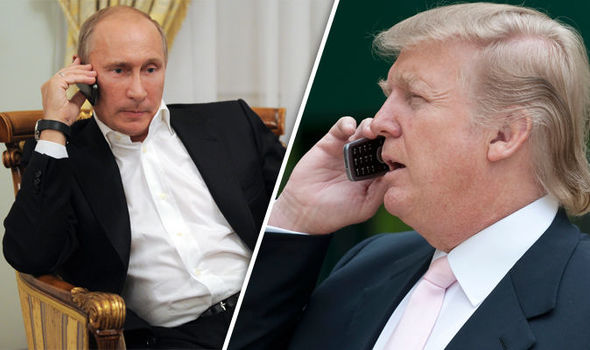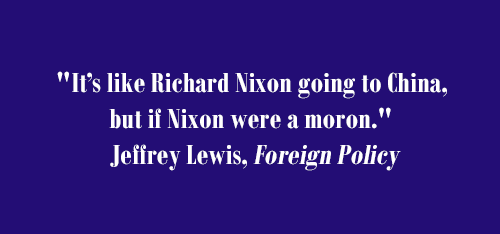My favorite thing about yesterday’s apparent Democratic victory in Pennsylvania 18 yesterday was this:
Republicans had banked heavily on selling their tax cuts to voters as proof that they’re getting things done for working- and middle-class people. But in the final days, Republicans dialed down their messaging about the tax cuts, because it wasn’t working.
Also:
At the beginning of February, almost two-thirds of GOP ads were about the Republican tax law, according to a Politico analysis. By election day, the same groups had pivoted sharply to decrying so-called sanctuary cities, as Politico reported:
Since the beginning of March, tax ads have been essentially non-existent. Only two are on the air now — one from the pro-Trump super PAC America First Action which briefly mentions the tax law, and a radio ad from a progressive group attacking Saccone for supporting the law.
That doesn’t mean Republicans are going to stop messaging on taxes for the 2018 midterms. They were all but doubling down during a GOP press conference on Capitol Hill Wednesday.
I think this is an example of Washington Republicans being out of touch with the voters. They’ve gone to the well with tax cuts too many times. Even people who have noticed a little bit more money in their paychecks probably realize that tax cuts do not magically make the overall economy better. They might even realize that increased deficits will ultimately lead to cutting benefits they need, like unemployment benefits and Medicare.
There was some speculation that Trump’s tariffs were aimed at winning yesterday’s election. If so, that didn’t work, either. It probably helped the Dems that the United Steelworkers Union was going door to door for Conor Lamb. The Union does not like Lamb’s opponent, Saccone, who has an anti-worker voting record.
Conor Lamb ran as an old-fashioned labor Democrat.
Lamb’s performance also demonstrates how vital union support is for Democrats running in white, blue-collar Trump country. Lamb, who ran as a staunch defender of Medicare and Social Security, engaged heavily with the United Mine Workers and won their support after he promised to back legislation that would fund their pensions. Lamb downplayed his connection to the national Democratic Party and elided differences on cultural issues, but he pulled in Trump-voting Democrats by promising a robust defense of popular safety net programs.
The DCCC put very few resources into this race, even though Lamb was the sort of “centrist” candidate the DCCC usually loves. Lamb was careful to not badmouth Trump. He’s opposed to an assault-weapons ban and single-payer health care but supports restoring Obamacare to its former glory. He says he is personally opposed to abortion but does not support legal restrictions on abortion. (This is significant, since he is replacing a guy whose opposition to abortion rights was his signature issue.) However, he also said he was not going to support Nancy Pelosi as Speaker of the House, which is probably why he was dissed by the DCCC.
There is a robust argument underway among Democrats over whether they should prioritize outreach to the suburban and educated white voters, mostly women, who are deeply distressed and energized by Trump, or redouble their focus on the blue-collar whites that Trump lured away. But last night’s results perhaps suggest that the GOP agenda is unpopular among both those demographics (as some Democratic pollsters have noted), meaning that this may be a false choice. If that holds, it will ensure a broad map with many districts seriously in play — and a better shot for Democrats at capturing the House.
Right after the 2016 election there was a huge uproar about whether the Democrats should emphasize “identity politics” and social issues or economic populist issues. And I wrote that this was a false choice. One set of issues does not negate the other. On a local level you might want to emphasize one set of issues over the other, depending on demographics, but there’s no reason on earth that Dems can’t run on economic populism and still be the party of social justice and equality.
And it looks like the Republican agenda is a vote killer.
Democratic strategist Simon Rosenberg suggests that the results show not just that the GOP tax plan is failing, but also that the whole Trump/GOP agenda is an albatross for Republicans. Trump has fully embraced Paul Ryan’s plutocratic agenda — trying and failing to repeal a huge chunk of the safety net and passing a huge permanent tax cut for the wealthy and corporations — while continuing the drumbeat of racist and xenophobic cultural provocations (with a hasty, haphazard gesture toward protectionism in the form of the tariffs thrown in). But Lamb apparently won back large numbers of disaffected blue-collar Democrats, or at least outperformed Hillary Clinton among them. As Cook Political Report’s David Wasserman told me: “He overperformed Clinton by the most in old union precincts.â€
These are exactly the people who are supposed to believe Trump when he tells them his tax plan is good for them. They didn’t. And the surge of suburban voters against Trump appeared to continue. In short: The pluto-populism isn’t working.
Remember, Trump ran as an actual populist. He was going to give everybody better health care and jobs and protect Social Security and Medicare and all that. But instead, when it became apparent he had no real agenda or plan, he just signed on to Paul Ryan’s “starve the poor” policies.
BTW, now Paul Ryan is trying to claim that Conor Lamb ran as “a conservative,” which is especially funny considering that Lamb opposes Ryan’s agenda —
But he also campaigned on a pro-union platform. He toed the Democratic line on health care, aired advertisements opposing Ryan-backed reforms to Medicare and Social Security, and hammered the Republican tax bill, arguing it would balloon the deficit and lead to cuts to entitlement programs.
To paraphrase another Republican politician, “Rarely is the question asked: Is our Republicans learning?” We’ll see.






